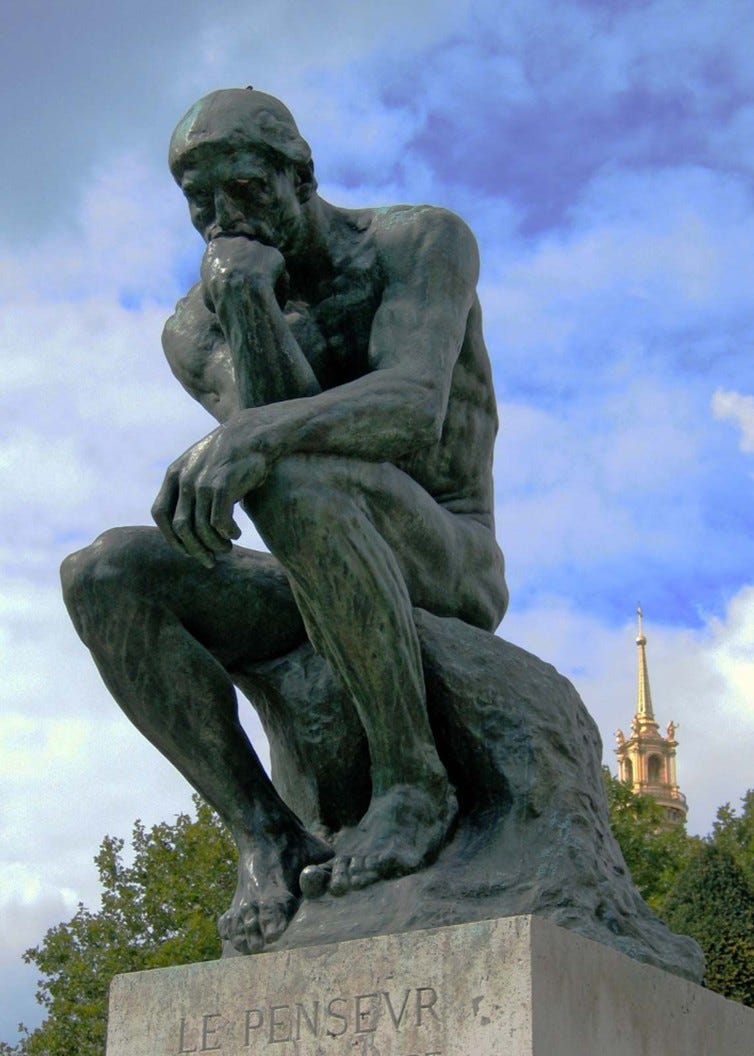“Can study be a form of worship?” Such was the question offered in class when I was at Southeastern College (now Southeastern University) in Lakeland, Florida. One could imagine a professor bursting out, “Yes it can! Now… where are you with the paper I assigned?”
As I recall, the answer was a qualified affirmation. The subject of study was acknowledged to be important. An investigation into long-term effects of concussions sustained by years of playing football probably wouldn’t qualify as worship material. (Unless, of course, if the brain as a creation of God figured into the equation!)
Study as worship, we were reminded, involves not only the subject but also the effort given and the dedication offered to the Lord.
Today, with the growing presence of artificial intelligence, that question feels especially relevant. Too often, AI becomes a siren song, luring us into jettisoning our independent thought. Instead of valuing our own inquiry, we can rely on its conclusions as it becomes a separate, autonomous mind.
Full disclosure: I often use AI as an editor, just as I have long implored my wife Banu for her careful eye. The request, “Can you read what I wrote and give me your reaction?”, has been directed to her more times than I can possibly count.
Still, at their root, study and writing are forms of thought. They spring from thinking. In Matthew 22, Jesus is asked, “Teacher, which commandment in the law is the greatest?” Jesus gives a two-part answer, beginning with “You shall love the Lord your God with all your heart and with all your soul and with all your mind” (vv. 36-37). The second part is loving oneself as one’s neighbor.
Jesus quotes from the Shema in Deuteronomy 6:5: “You shall love the Lord your God with all your heart and with all your soul and with all your might.” He substitutes “mind” for “might.” The gospels of Mark and Luke have their own variations.
It should be noted all of these aspects—heart, soul, might, mind—are together seen as the whole of oneself loving the Lord. Each speaks of a particular emphasis. Love the Lord with all of your mind: the quality emphasizing thought.
Again, Jesus is drawing from the Shema, a sort of statement of faith. “Hear (שָׁמַע, shema), O Israel.” Those “hearing” him would agree the Shema is the greatest commandment! Any chance of catching him in his words would emphatically fall flat.
In looking to our elder sisters and brothers in faith, we recognize Jewish belief as treasuring thought. The recent issue of the journal Sapir has the theme “Chosenness.” One focus of the discussion centers on thinking.
Seemingly to the point, Bret Stephens has an article titled, “Jews were Chosen to Think.” He speaks of the number of achievements of the Jewish people, disproportionately so in terms of population. He presents a laundry list of Jewish stories, traditions, and historical events, noting how Jewish thought has learned to be flexible.
Stephens comments, “That spirit of openness, that freshness, that willingness to reexamine things at their foundations may not be unique to Jews. But it is characteristic of Jews in a way it hasn’t been in cultures where second-guessing is treated as impudence, disagreement as treason, and dissent as heresy.”
[ready for tikkun olam]
He cites as a key feature that “Jews think about repair.” This is an especially important point. “Repair” in Hebrew is tikkun. Tikkun olam is “repair of the world.” It is an all-encompassing repair. It speaks to anything that is damaged and in need of some big-time tender loving care.
It is said of tikkun olam that it “literally means to do something with the world that will not only fix any damage, but also improve upon it, preparing it to enter the ultimate state for which it was created.” We are called “to repair the world so that its Creator is no longer hidden within, but shines through each thing in magnificent, harmonious beauty.”
It is repair in all of its gifts and all of its glory. Fixing a neighbor’s leaky toilet… giving someone a ride to a doctor appointment… working for peace among people and among nations… producing an inspiring work of art… saying a kind word… Examples never end.
Lest it seem I’m going off track with these musings on tikkun olam—repairing the world—we should notice that all of this speaks to thinking and study as worship.
Love the Lord with all of your mind.
With my earlier caution about AI in view, I recall a recent exchange with ChatGPT on trauma. The insight was this: “The truth is: evil doesn’t play fair. Sin isn’t logical. Wounded systems don’t follow reason.”
The darkness fears rationality. Malevolence abhors wisdom. It is the diametric opposite of worshipping the Lord, of loving God. However, it relishes in confusion. It is home sweet home for pandemonium—“all the demons.” (Well, maybe not home sweet home. How about home sour home?)
Against this we hear the voice of God. “Let the wicked forsake their way and the unrighteous their thoughts… For my thoughts are not your thoughts, nor are your ways my ways, says the Lord” (Isaiah 55:7-8).
[Apologies, Mr. Thinker—your thoughts are not God’s thoughts.]
So study is not simply the acquisition of knowledge but the offering of the mind in devotion. When joined with love of heart and soul, it becomes a practice that shapes us for tikkun olam—for the repair of the world. Faithful thinking resists confusion and seeks wisdom. We align our thoughts with the One, as the prophet says, whose ways are higher than ours.
Can study be a form of worship? It surely does, when study itself becomes prayer, and learning is an act of love.




